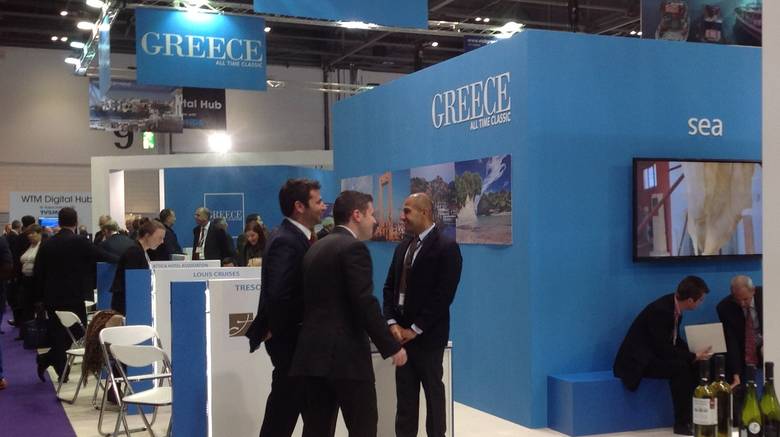Greece’s political stability has benefited the tourism industry
Greek Tourism Enjoys Best Summer Season on Record
LONDON — Greece’s tourism sector appears to be reaping the rewards from a period of relative political stability as well as attracting many travelers who had shied away from other Mediterranean hotspots, like Turkey and Egypt, following a string of attacks.
Elena Kountoura, Greece’s alternate minister for tourism, said Monday that 2016 has been “another great year for Greek tourism,” with international arrivals up 7 percent in the nine months through September compared with the year before. The four summer months from July were the best ever for the sector, she said.

“By the end of the year, international arrivals are expected to exceed 27 million, including cruise arrivals, which is a new high record for Greece,” she said at the World Travel Market in London, the industry’s biggest global gathering.
That’s a much-needed boost for a country that has spent the past few years mired in a debt crisis that’s required successive governments to enact tough budget austerity measures in return for three massive international bailouts.
Greece’s tourism industry has benefited from a period of political calm this year and attracted travelers who decided not to holiday in places like Egypt, Tunisia and Turkey — three countries that have seen extremist attacks and political volatility over the past couple of years.
Tourism, which according to many measures accounts for around 25 percent of Greece’s annual GDP when direct and indirect influences are incorporated, will play a key role in any economic recovery in the country.
Since 2008, Greece’s economy has contracted by around a quarter and seen unemployment spike to around 25 percent. It badly needs tourism revenue if it is to recover and sustainably create jobs.
Vasilis Kontos, CEO of Corfu Holidays Travel, says the sector has seen a rise in interest from those who may have originally opted to holiday elsewhere in the Mediterranean.
The boost in tourism numbers has helped the sector make up for hefty sales tax increases that were required by European creditors in return for last year’s three-year bailout of around 80 billion euros ($89 billion). Firms opted against passing on that rise in costs in order to maintain tourist interest.
“It’s something we have had to absorb,” he said at the World Travel Market.



















